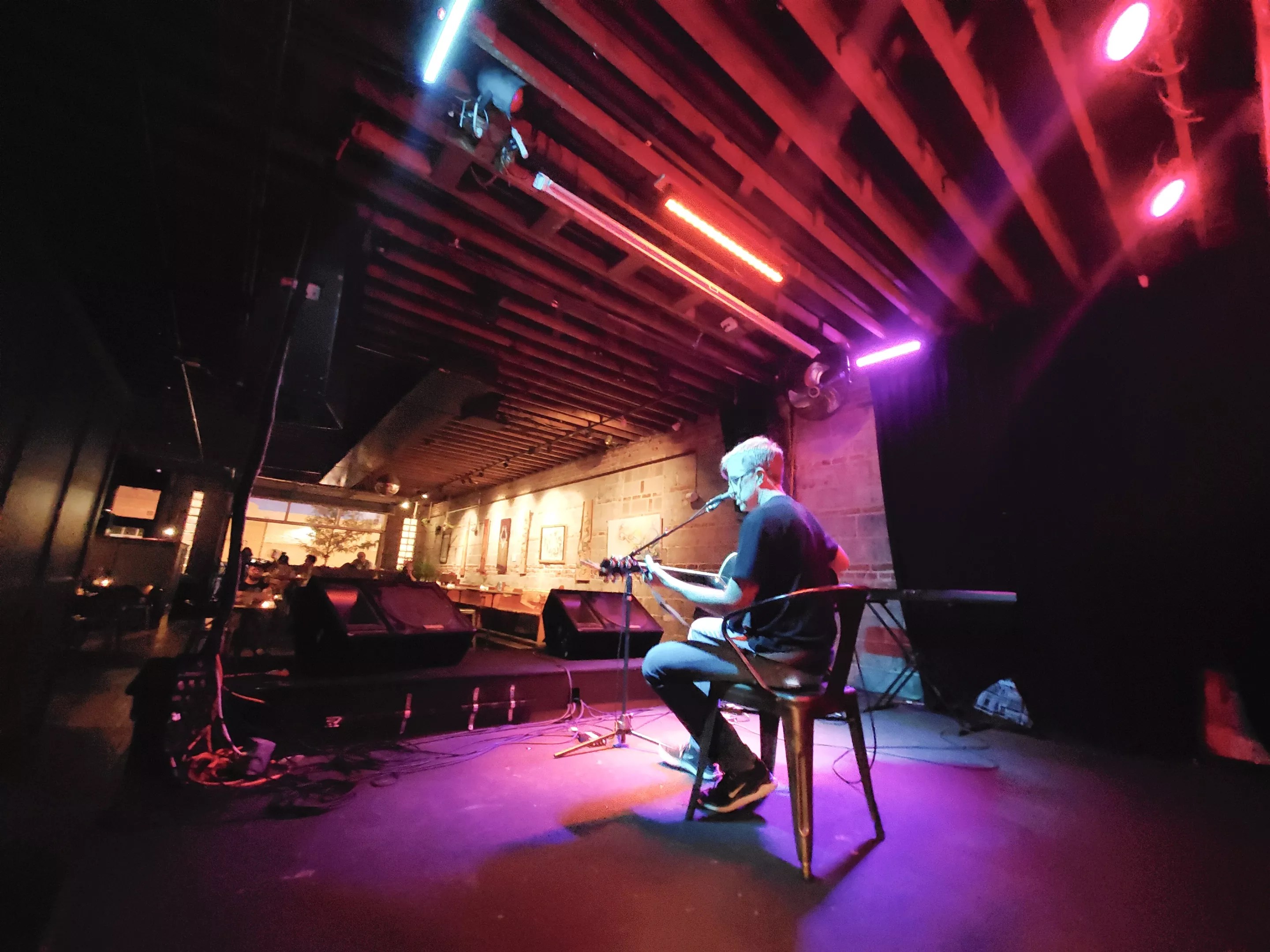
Anthony Ruptak

Audio By Carbonatix
The stage of an open mic is a “portal to the infinite,” says Anthony Ruptak, singer-songwriter and longtime host of the Syntax Songwriters Open Mic at the Broadway Roxy. “It’s a gateway to self-love, relationships and self-worth. It’s a valuable tool for growth and community feedback.”
Before COVID-19, Denver hosted over a dozen weekly and monthly open mics at venues that ranged from coffeehouses to bars, attracting both large turnouts in front of stages and intimate crowds in brewery corners. What they all had in common was the creation of a safe space for individuals and community to grow. These days, those stages are virtual or largely nonexistent, and all are under threat as independent venues and businesses struggle to survive.
That’s a huge loss for the music community, says Ruptak. After all, open mics often create a bridge between experienced acts and those who are just starting out.
While there’s a stereotype that open mics are filled with folksingers, that’s not the reality. The genre of music varies depending on the night and the place, and occasionally spoken-word poets or comedians take the stage. Luke and Nikki Tredinnick, hosts of the open mic at Woods Boss Brewery, recall once asking a room full of performers for a guitar to borrow; turns out there were three cellos, a trumpet and a violin in the crowd, but not one musician had brought a guitar.
The Tredinnicks, both trained horn players, love accompanying acts on stage with their assortment of instruments. “We like to encourage collaboration, community and making connections,” Nikki says. While social distancing has made sitting in with musicians challenging, the couple is still finding connection through the Woods Boss Your Time Virtual Open Mic that they started hosting on Facebook and Zoom when Denver first went into lockdown.
“It was a lot of trial and error in terms of getting the technology to work, because not one of us really knew how to do it,” Luke says.
But since they figured it out, they’ve had a lot of fun connecting with open-mic regulars and new people they’ve never met in person. They’ve even had participants from as far as Albuquerque and the East Coast. Despite the limitations of virtual performances, they feel that they can still give voice to people by being supportive and encouraging.
Running the event online also gives them peace of mind that they might not have running their events live right now.
“We still don’t know how safe it is to be performing and singing outdoors, sharing equipment,” says Nikki. Plus, running the open mic from their house is easier and safer for their one-year-old daughter.
Safety was the main reason that Ruptak put the Syntax Songwriters Open Mic on hiatus indefinitely, even though the Broadway Roxy, where it’s held, reopened. He felt conflicted about restarting the open mic in June when he had the chance, and he put the question out to the Facebook community. “People were concerned about [the] health measures” of doing it in person,” he says, though he adds that the Broadway Roxy “is doing everything they can as far as following the city’s COVID [regulations] for restaurants/bars.”
Still, “the mental health of the community is always at the forefront of my mind, especially now,” Ruptak says. “Times are very turbulent. I’ve heard a lot of silence from the community that was the Syntax Open Mic, so I do worry about what’s going on. I miss it, and I miss the people.”
Ruptak worries for people who use the open mic as a social tool. For a lot of people, “it was their thing,” he says. “There were people who would drive two hours every week” just to play and connect with others. And hosting reminds him of how much open mics meant to his own beginnings as a musician, how much he relied on that safety net and that community.
In the meantime, Ruptak is convinced that the performers will be able to weather the times and re-emerge not only with new creations, but with a greater understanding of themselves and appreciation of the music communities they’re a part of.
What’s still unknown is whether there will be many venues left to host them.
The National Independent Venue Association estimates that 90 percent of its members will be forced to close without government aid by the end of the year. The Broadway Roxy, which opened a little over a year ago in the Syntax Physic Opera space, is one of those members whose future hangs in the balance.
Two bills currently pending in Congress would provide some relief if passed. The Save Our Stages Act offers financial help for independent venues, and the RESTART Act proposes aid to businesses that have suffered extreme loss during the pandemic.
While most venues and bars are eager for aid, open mics are less about revenue and more about building a grassroots music scene. The virtual events allow them to continue doing that.
“They’re not doing it for money,” Nikki Treddinick says. “They’re doing it to keep the community together.”